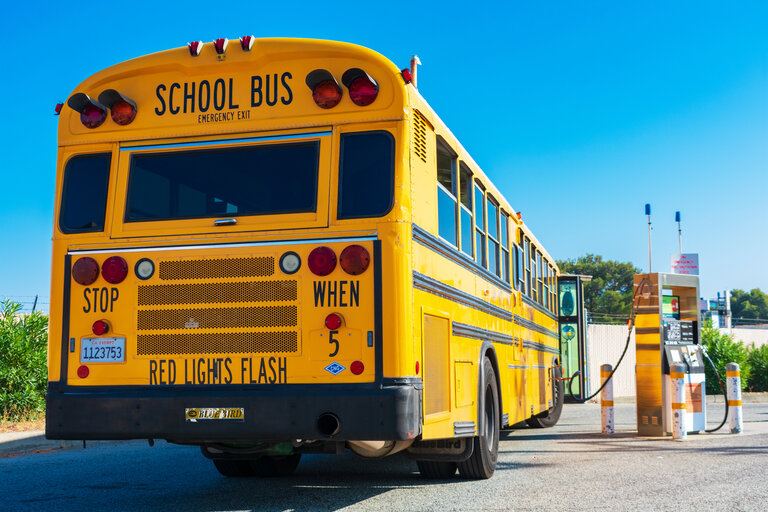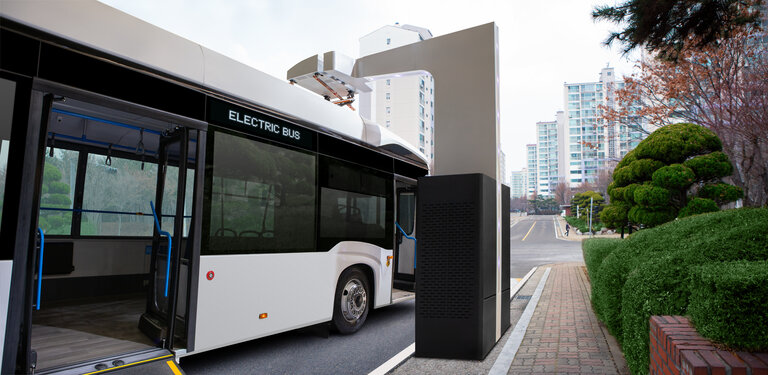Clean Bus Planning Awards
The Clean Bus Planning Awards (CBPA) program reduces barriers to alternative fuel bus deployment by providing school and transit bus fleets with free technical assistance to develop comprehensive and customized fleet electrification plans.
CBPA is managed by the National Laboratory of the Rockies (NLR) and funded by the Joint Office of Energy and Transportation (Joint Office). CBPA connects transit and school bus fleets with technical experts to support planning for bus electrification. Fleets also have the option to receive free deployment assistance from NLR at the completion of their plan.
CBPA is not an incentive program, and fleets do not receive direct funding—rather, selected applicants will be allocated technical assistance resources by NLR.

FAQs
Establishing an electrification plan is the first step in creating an economically and environmentally sound fleet for school districts and transit agencies.
The planning process helps to:
- Create a vision for deployment and rally unified support from decision makers, stakeholders, and constituents.
- Coordinate internal and external project teams while reducing burden on overloaded fleet managers.
- Establish realistic short-term and long-term targets that are supported by sound technical analysis.
- Serve as a foundation and reference point for day-to-day operations and alternative fuel bus deployment.
One of the objectives of the program is to prepare fleets for electrification. The program may also help set them up for success to pursue federal funding for bus electrification, including the Environmental Protection Agency's (EPA’s) Clean School Bus Program and the Federal Transit Administration's (FTA’s) Low or No Emission (Low-No) Grant Program.
Eligible applicants are designated under the EPA CSB and FTA Low-No programs, with some exceptions. Eligible applicants include:
- State and local governmental entities providing bus service, including public school districts and charter schools.
- Private school bus fleets with an active contractual agreement to serve a public school district.
- Nonprofit school transportation associations.
- Tribes, Tribal organizations, or Tribally controlled schools responsible for the purchase of school buses or providing school bus service for a Bureau of Indian Affairs (BIA)-funded school.
- Direct or designated recipients of FTA grants, including state and local governmental authorities, and Tribes.
NLR strongly encourages applications from fleets that meet one or more of the following prioritization criteria:
- (School bus) fleets domiciled or operated in a prioritized school district as recognized under EPA's Clean School Bus Program.
- Fleets domiciled or operates in a rural (non-urbanized) area as defined by FTA's Low-No Grant Program.
- Fleets operated by Tribal entities recognized by and eligible for funding and services from the BIA.
NLR reserves the right to redirect fleet applicants seeking more targeted technical assistance to the Joint Office’s existing technical assistance service. More information can be found on the Contact Us page.
Plans may vary based on unique circumstances and considerations for each fleet. The goal of the plan is to demonstrate a clear, attainable path to electrification.
The plan may include:
- Existing fleet baseline analysis.
- Vehicle electrification (battery electric and/or hydrogen fuel cell) feasibility analysis.
- Infrastructure assessment and optimization strategy.
- Procurement and project staging.
- Financial analysis.
- Emissions modeling.
- Stakeholder analysis.
- Workforce considerations.
- Recommendation for next steps.
Fleets receiving an electrification plan also have the option to request deployment assistance. Suitability for deployment assistance will be determined by NLR following the completion of the plan.
Supported activities as part of this assistance may include:
- Monthly calls to monitor procurement progress and advise on barriers encountered.
- Annual plan updates to include changes in vehicle inventory/deployment, incentive availability, and financial modeling.
- Development of standard operating procedures for drivers and mechanics.
- Request for proposal development for vehicle and infrastructure procurement.
- Telematics and/or data logger deployment and analysis.
The CBPA opened on Feb. 20, 2024. NLR will review applications on a rolling basis. Fleet selection and commencement of projects will occur on a rolling basis beginning in February 2024. NLR anticipates that final electrification plans and presentation of those plans will occur within 6 months from the selection date. Approved deployment assistance will begin after the final plan and presentation. The deployment assistance will be available for a period not to exceed 3 years.
Active program participants are generally expected to include (but are not limited to) fleet managers; representatives responsible for fleet budget decisions, procurement of vehicles, and/or sustainability; facilities managers at potential charging locations; and other key leadership/subject matter experts and decision makers. The responsibilities and expectations for participating fleets are summarized below and may not be exhaustive.
Participants are expected to:
- Attend and participate in a kickoff call and monthly meetings with NLR and its partners, along with any other relevant stakeholders.
- Provide baseline fleet assessment data that includes (but is not limited to) fleet size and makeup, route data and schedules, fuel types, costs, and any additional information needed to complete the analysis as requested.
- Collaborate with NLR and its partners to identify any data gaps and agree on assumptions.
- Lead efforts to identify and engage with all relevant stakeholders.
- Review and provide feedback on draft plan to inform the final plan. Collaborate with NLR and its partners to identify any sensitive information to be redacted from plan document to be shared publicly.
- Recruit relevant decision makers and stakeholders to participate in a post-plan presentation meeting to review plan results with NLR and its partners.
- Participate in deployment assistance activities (as applicable).
How To Apply
This program is no longer accepting applications.

